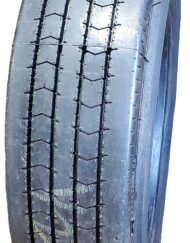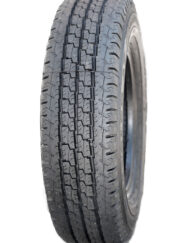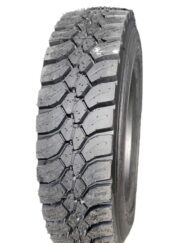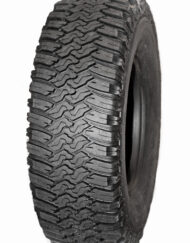Do I Need to Get My Tires Balanced?
As you pick up speed on the highway, does your car jump like a skittish kitten? As you cruise down the Interstate, do your arms jiggle like Jello? As you exit the expressway, does your steering wheel vibrate like a quarter on an amplifier? Are your brand-new tires wearing out more quickly than your toddler’s shoes?
If “YES!” is the answer, then it’s time to stop blaming it on nerves, your spouse’s driving habits, or the U.S. Highway system. Instead, take a closer look at your wheels, they’re probably out of balance. Not that you can see an imbalance with the naked eye, you’ll have to trust your mechanic to unravel the mystery for you.
Read on to learn everything you need to know balancing tires. We’ll cover all the reasons why balancing your retreads is important, how it’s done, how often you need to have your tires balanced, and more. Remember, retread tires and factory-new rubber both need to be professionally balanced to achieve maximum performance and tread life.
3 Reasons Why You Need to Balance Your Tires
Safety First!
Not only is a well-balanced tire easier on your body, as it helps ensure a smoother ride, but it’s also the safe and cost-effective way to roll. If your tires are severely imbalanced, it may be difficult to maintain control, especially in slick conditions where road feel is extra-important.
Rapid Tire Wear
It’s worth noting that a reputable mechanic will include balancing for a small fee (generally $10-20 for a set of 4) as part of installing a new set of tires. Be sure to ask if this service is included. If it’s not, find a new mechanic. That said, if you’re putting thousands of miles on a shaky set of tires, you’re shaving years off your rubber. Expect to buy a new set of tires much sooner than you would otherwise have to.
Suspension Wear and Tear
All that bumping around isn’t just hard on you, your passengers, and your tires, it also adds a lot of added stress to your vehicle’s suspension. Added stress means extra visits to the car doc. Extra trips to the mechanic mean less time on the road and fewer dollars in your pocket.
How Are Tires Balanced?
If you haven’t spent as much time staring at wheels and tires as we have, take a close gander at the space between your tires and your wheels. Odds are you’ll notice a row of tiny zinc or steel weights lining the inside of the wheel (environmentally damaging lead weights are largely a thing of the past), these weights help evenly distribute the weight of the tire and help prevent vibration.
There are two methods of achieving this perfect weight distribution: Dynamic and Static Balancing.
Static Balancing
This method balances tires when at rest. “Static balance can be measured by a static balancing machine where the tire is placed in its vertical axis on a non-rotating spindle tool. The spot on the tire with the greatest mass is acted upon by gravity to deflect the tooling downward. The amount of deflection indicates the magnitude of the unbalance. The angle of the deflection indicates the angular location of the unbalance” (Wikipedia).
Dynamic Balancing
Dynamic balancing refers to “the forces generated by asymmetric mass distribution when the tire is rotated, usually at a high speed” (Wikipedia).
How Often Do I need to Get My Tires Balanced?
It’s generally recommended that you have your tires balanced every 3000-7500 miles, check with your mechanic or tire manufacturer for a precise guideline. Certainly, you should have your tires balanced if they’ve been taken off rims for some reason (swapping summer rubber for winter treads, for example). You should also invest in a fresh balancing act if you’re having your car aligned. Naturally, if you happen to notice a vibration between regularly scheduled maintenance appointments, it’s possible that one of your existing weights fell off. Take her in and her back in line!
Generally speaking, however, it’s not necessary to have your tires balanced after a routine rotation. After all, tires in balance tend to stay in balance. Your tires don’t care which corner of your car they’re supporting!
My Tires are Balanced, but My Car’s Still Vibrating!
Uh, oh. If your mechanic swears that your tires are balanced, you may have a bigger problem. Damaged tires, bent (or “untrue”) wheels may also cause a very similar vibration. If you live in a pothole state or you’re in the habit of jumping curbs, you might be due for a new set of rims or retread tires!
Contact Tire Recappers to find the best retread tires for your vehicle at the best price.




